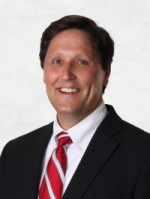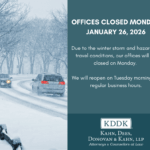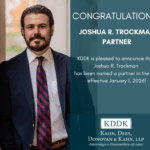The Sierra Club recently lost a case against a utility company in which it alleged that particulate matter emanating from a Texas coal-fired power plant violated federal environmental laws. In Sierra Club v. Energy Future Holdings Corp., No. W-12-CV-108 (W.D. Tex. March 28, 2014), the United States District Court ruled against Sierra Club on all of its claims, based on the fact that, prior to the lawsuit being filed, the power plant had obtained a permit that authorized higher particulate levels during startup, shutdown and other activities.
The Court further ruled on August 29, 2014, that the Sierra Club, as the plaintiff and the non-prevailing party, must pay virtually all the defendant’s attorney and expert witness fees in the amount of $6,446,019.56. This award against a plaintiff demonstrates that before bringing a lawsuit, or at least continuing it, substantial due diligence must be undertaken to establish that the claims asserted are supported by adequate empirical evidence and that the defendant does not have a valid defense.
This case also exemplifies that many American courts and legislatures are more often departing from the historical “American Rule” that each party bear only its own attorney and expert fees and costs. Especially in the field of environmental law, the fee-shifting European model of “loser pays” continues to emerge in more cases. Many U.S. jurists and commentators will contend that a “loser pays” system poses unfair obstacles for individual plaintiffs to access justice. Yet, where the parties are large well-capitalized entities, as was the case in this Texas lawsuit, a fee-shifting “loser pays” or “frivolous claim” ruling appears to now be more widely applied by the courts.
In any event, where circumstances may provide for the right to a prevailing party/fee-shifting obligation, whether by contract, statute or procedural rules, there exists a growing probability that such circumstances may induce swifter negotiated solutions. Many legislators and jurists will agree, as did our late President Lincoln, that the acceleration of negotiated settlements, as opposed to litigation, generally serves the best interest of all sides.
For additional information, please contact attorney Mike Schopmeyer at mschopmeyer@KDDK.com or (812) 423-3183, or contact any member of the KDDK Environmental Law Practice Team.
About the Author

Mike Schopmeyer, a Co-Managing Partner at Kahn, Dees, Donovan & Kahn, LLP (KDDK), in Evansville, Indiana, has more than 30 years’ experience closing and resolving business, environmental, construction, real estate, and intellectual property deals and disputes. He has extensive experience in economic development law as well as government, school and municipal law. Honed from service as a private practitioner, government attorney, arbitrator, and civic leader, Mike’s financial acumen empowers clients to more swiftly reach durable solutions.






